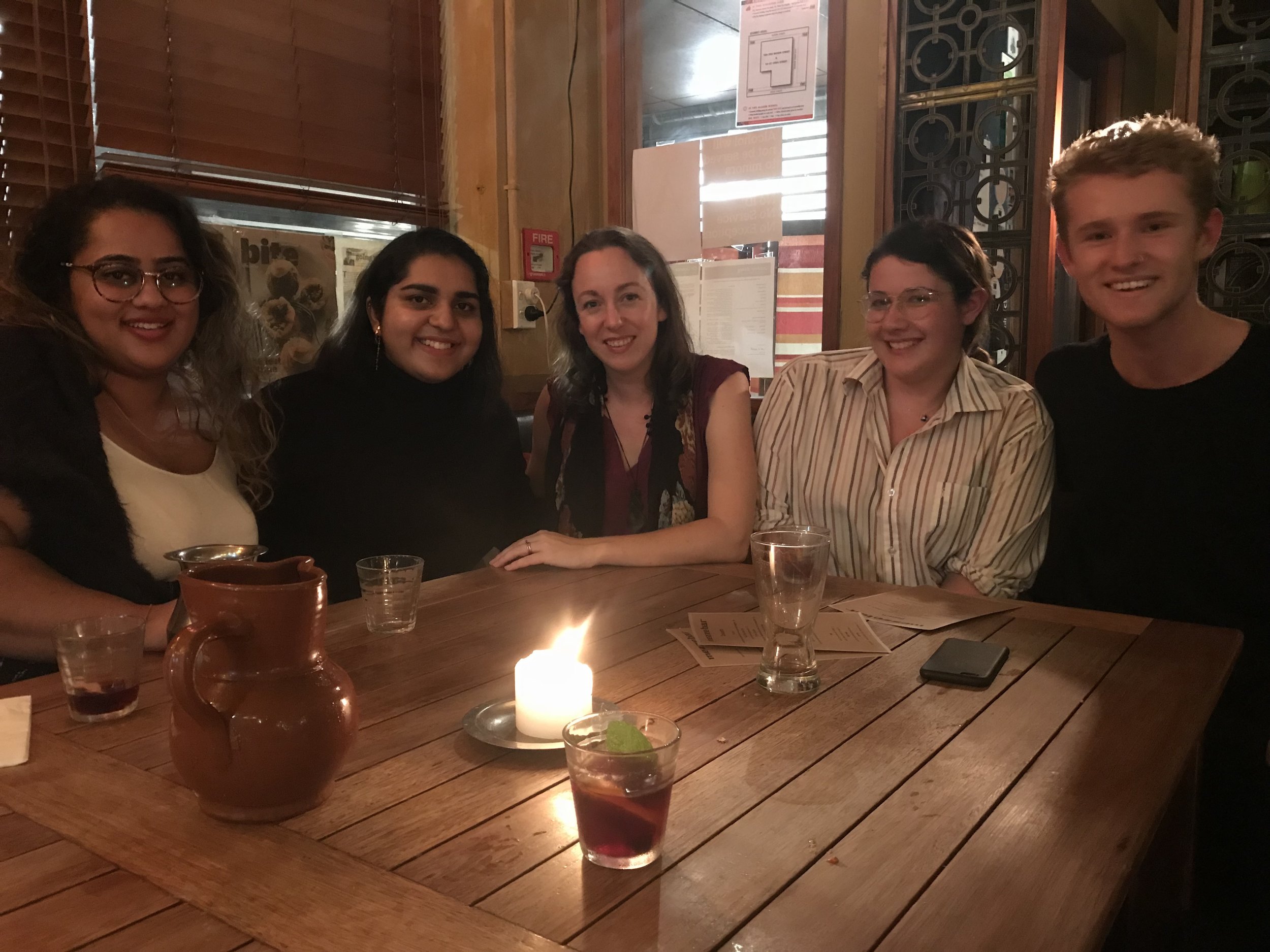If there’s one thing I learnt over the course of our training weekend, it was the power of people. The power of people to be catalysts for change on the world’s largest stages for our biggest challenges. As one of our speakers David Tong said, “the UN follows governments, and governments follow people”. I also saw the power of people who were strangers a mere two days ago, share their vulnerabilities, reflections and insights to find the silver linings in each other’s dark clouds, enabling each others personal growth. For myself, the saying “knowledge is power” has been at the forefront of my mind. This delegation will be my first as head delegate, a concept that excited me as much as it scared me –which is why I knew I had to take the opportunity. During and after my time at the OECD forum, I have made it a goal of mine to share the knowledge or ‘power’ I gain to make the ideas and resources institutions such as the OECD have more accessible.
What is the OECD?
In what may have been the best and most relevant introduction to the OECD ever, Peter Wilson, Principal Economist at the New Zealand Institute of Economic Research (NZIER) and former Director at NZ Treasury for almost 11 years (making him seasoned at OECD forums) told us what the OECD is not in comparison to other UN/international agencies:
It is not [1]:
- Involved in law making (like the EU and UNFCCC), but it does have codes;
- Involved in conflict resolution (like the UN, ICJ, WTO);
- A bank (cc: World Bank)
- An aid agency (like UNDP) –but it does supervise and record aid efforts. Fun fact: military ‘aid’ does not count (as much as some countries may wish it so)
- An emergency fund (unlike the IMF)
This was an extremely helpful distinction to make, especially given my visit to the World Bank and IMF which align nicely with the OECD. The OECD focuses on governments and advocates for structural reform that will promote growth and equity. In fact, their motto is “better policies for better lives”. As an OECD member, New Zealand gets access to the some of the best economists in the world, comparative data, peer-review and perspective [1]. We use these resources all the time. In my own degree, we have consistently used OECD data to highlight issues in our society. For example, we have the highest youth suicide rate of all OECD countries, and the third highest obesity rates, behind the USA and Mexico [2, 3]. As much as we love New Zealand, we still have a long way to go in these areas. As members of the OECD, we can learn from comparable countries and start to implement change.
Economics has people at its centre. This was a concept explored by both Peter and Shamubeel Eaqub which challenged my preconceived notions (mainly formed by nightmarish year 10 economics classes) that painted economics as a bunch of numbers and graphs -or should I say curves. Amartya Sen defines development as “the ability to lead the life you value”. However, this definition doesn’t align with how we currently measure a country's development –using the Gross Domestic Product as an economic indicator for countries. NZ Treasury has used OECD analysis to think of a new way of measuring our countries growth and intergenerational wellbeing. The capitals they have included are more holistic covering natural, social, human, and financial/physical capital. If you’d like to know more about this, and what this shift means for NZ, check out this paper from Treasury here.
Closer to home, with the help of Shamubeel –all round good guy, famously known for his column “tax is love”, explored the intersection of economics, policy and inequality. What I found most interesting was that New Zealand has already seen these levels of inequalities post WWII, it took people to demand change then, just as it will do now. We explored how perceptions on tax can be linked to human notions of empathy and ‘othering’ of people in society worse off and different than ourselves. What he recommended, and what I will take with me, is using the forum to find ways to create a society that celebrates our differences and strives to be more equal.
Special shout out to our other incredible speakers Hannah Lees and Andrew Chen who shed light on education inequality and digitalisation in New Zealand. When I told my colleagues about the calibre of speakers I had heard from, they couldn’t believe it happened in such an intimate setting –truly grateful and inspired.
Finally, I am so excited to share this trip with my fellow delegates Lucy, Chhavi and Harry. Our backgrounds are so diverse, the lens and analysis we apply on topics both challenge and complement each other.
Ciao for now!
-oops, I mean Au revoir! ;)
Proof we had fun as well! ft. our lovely fellowship mentor Eleanor
--
All posts by Institute delegates reflect their own thoughts, opinions and experiences.
References
1. Wilson P. New Zealand, the OECD and Me. Presented at: Aotearoa Youth Leadership Institute. 13 May 2017
2. Ministry of Social Development (2016). The Social Report 2016 – Te pūrongo oranga tāngata. MSD. Available at: http://socialreport.msd.govt.nz/health.html
3. OECD (2017). Obesity Update. [online] OECD, p.3. Available at: https://www.oecd.org/els/health-systems/Obesity-Update-2017.pdf

